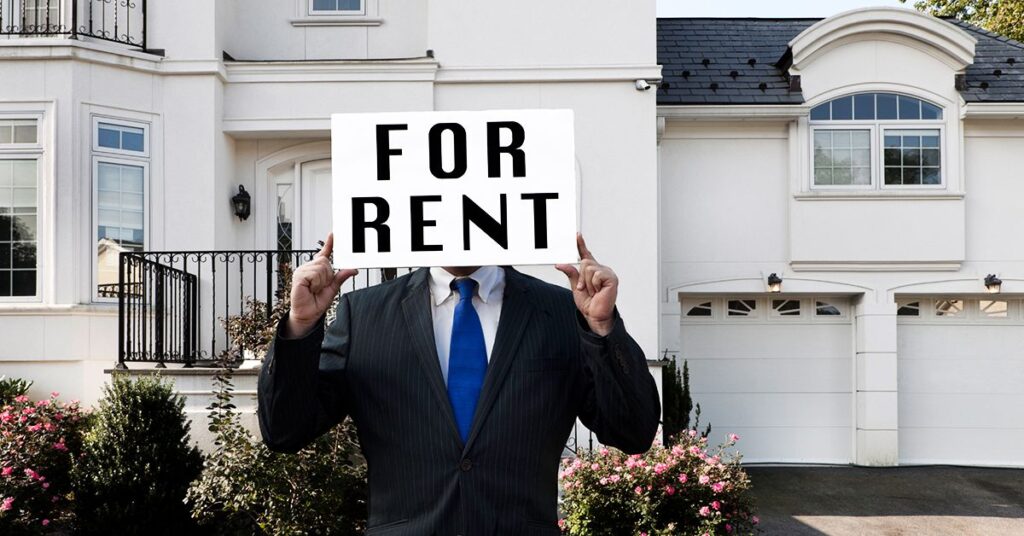Rent increases are a common concern for tenants, impacting their monthly expenses and financial planning. In 2024, tenants should be aware that landlords have the authority to raise rent, including by $300, depending on factors such as lease agreements and local regulations.
Legal frameworks governing rent adjustments vary by location, with some areas imposing rent control laws while others allow landlords more flexibility in setting rental rates. Understanding the legal context and tenant rights is essential for tenants facing potential rent hikes in 2024.
How Can You Have Fixed Rent in Illinois?
In Illinois, securing fixed rent in a rental agreement involves incorporating a provision in the lease contract stipulating that the rent remains unchanged throughout the lease term. For instance, if the lease spans one year, the rent amount remains consistent for that duration and only changes once the lease expires and a new one is signed.
However, it’s crucial to note that even with a fixed rent provision, landlords may still have the ability to raise the rent under certain circumstances. This could occur if the lease permits rent increases or includes provisions for automatic adjustments based on factors like a specified percentage or consumer price index.
Landlords and tenants might mutually agree to new lease terms, including rent adjustments, even with a fixed rent provision in place. Therefore, it’s essential for tenants to thoroughly review and understand the terms of the lease agreement, along with any applicable local laws, before finalizing the rental arrangement.
Read As: BEING EVICTED WITH NO PLACE TO GO? SOLUTIONS INSIDE!
What is rent control?

Rent control, also known as rent regulation, refers to laws and ordinances implemented by governmental bodies to limit the extent to which landlords can increase rental rates within a given period. These regulations aim to ensure housing affordability by imposing constraints on rental prices. Generally, there are two main types of rent control:
Eviction Control
This aspect of rent control specifies criteria under which landlords are prohibited from evicting tenants, typically to protect vulnerable populations from displacement.
Price Control
Price control regulations define the permissible conditions under which landlords can increase rent. They often tie rental rate adjustments to factors such as inflation rates, tenants’ incomes, or other economic indicators.
Rent control measures are more commonly found in urban areas where demand for housing outstrips supply, leading to soaring market-rate prices that may render housing unaffordable for many residents. However, it’s important to note that not all regions or states implement rent control laws. Those that do may have varying degrees of regulation and enforcement.
The Rent Increase Notice
The rent increase notice is a formal communication that landlords must provide to tenants when raising the rental price of a property. This notice typically includes details about the new rental amount and when it will take effect. In Illinois, the amount of notice required for a rent increase depends on factors such as the type of lease agreement and the property type.
For example, if a tenant has a lease, the landlord must give them 30 days’ notice before the rent increase goes into effect. On the other hand, if the tenant has a month-to-month rental agreement, the landlord must provide 45 days’ notice before implementing the rent hike.
Landlords must adhere to these notice requirements to ensure transparency and allow tenants sufficient time to adjust to the new rental terms. Additionally, tenants should keep records of all rent increase notices and written communications with their landlord to stay informed about any changes in their rental agreement.
How Much Can a Landlord Raise Rent in Illinois in 2024?

In Illinois, no state law limits how much a landlord can increase rent. However, some cities in Illinois have rent control ordinances that limit the amount of rent increases.
It’s best to check with the local government in the city where the rental property is located to determine if any rent control laws in place would limit the amount a landlord can increase rent.
A rent increase that is significantly higher than the market rate or that is unaffordable for the tenant could be considered unreasonable. Additionally, landlords cannot raise rent in a discriminatory manner or in retaliation against tenants who have exercised their legal rights.
It’s important to note that some cities in Illinois have implemented rent control laws, which might limit the amount of rent increases for certain properties. For example, Reno has a 5% plus inflation cap on rent increases for certain properties.
So, it would be best to check with your local government to see if there are any rent control laws in effect in your area. The median Fair Market Rent in Illinois is $906 for a 2-bedroom home in 2023.
Can My Landlord Increase My Rent by $300?
Yes, your landlord can legally raise your rent by $300, but this depends on several factors such as the terms of your lease agreement, local rent control laws, and whether you are in a month-to-month or fixed-term lease.
In most cases, landlords must provide proper notice before implementing any rent increase. The required notice period before a landlord can raise the rent varies by jurisdiction. Typically, landlords must give 30 to 60 days’ notice for month-to-month leases. For fixed-term leases, landlords can only raise the rent at the end of the lease term, unless otherwise specified in the lease agreement.
However, there are circumstances under which a $300 rent increase could be considered illegal, such as if it violates local rent control or stabilization laws, is discriminatory, or is used as retaliation against a tenant for exercising their legal rights. If you can’t afford a $300 rent increase, you can try negotiating with your landlord for a smaller increase or more time to find alternative housing.
When faced with a rent increase, tenants can employ various negotiation tactics to potentially mitigate the impact:
Market Analysis
Research local rental market trends to understand the fair value of your rental property, providing evidence to support your negotiation stance.
Early Engagement
Initiate discussions with your landlord well before the lease renewal to express your concerns and negotiate terms effectively.
Leverage Vacancy Costs
Highlight the potential financial loss to the landlord if the property remains vacant due to an unaffordable rent increase, proposing a compromise to avoid turnover costs.
Compile Property Data
Gather detailed information about the condition and features of your rental unit to strengthen your negotiation position and justify your request for a reasonable rent increase.
Specify Your Proposal
Clearly articulate your desired outcome, whether it’s a reduced increase or specific lease terms, and ensure any agreement reached is documented in writing.
Emphasize Reliability
Remind the landlord of your history of timely rent payments and responsible tenancy as reasons to consider your negotiation request favorably.
Compare Local Offerings
Present data on comparable rental properties in the area to demonstrate that the proposed rent increase exceeds market norms, supporting your case for more favorable terms.
Offer Lease Extension
Express willingness to commit to a longer lease term if you have a strong rental history, which can be advantageous in negotiations and provide stability for both parties.
Understanding Rent Increases
Rent increases are adjustments made by landlords to the amount tenants pay for their rental properties. These increases can occur for various reasons and are subject to certain legal and contractual considerations. Here’s a deeper look into the factors influencing rent adjustments:
Market Dynamics
Landlords often raise rents in response to changes in the local rental market. If demand for rental properties increases or if similar properties in the area are renting for higher prices, landlords may adjust their rents accordingly to stay competitive and maximize their rental income.
Property Upgrades and Maintenance
Improvements or renovations to the rental property, such as remodeling the kitchen, upgrading appliances, or enhancing common areas, can justify a rent increase. Landlords may raise rents to offset the costs of these upgrades and to reflect the improved value of the property.
Operating Expenses
Landlords may raise rents to cover rising operational expenses associated with managing the rental property. This can include increases in property taxes, insurance premiums, utility costs, maintenance fees, or other overhead expenses.
Inflation and Economic Factors
Inflationary pressures and changes in the overall economy can influence rent increases. Landlords may adjust rents to keep pace with inflation and to maintain their profit margins amid changing economic conditions.
Rent Control Law
In some jurisdictions, rent control laws restrict the amount and frequency of rent increases that landlords can impose on tenants. These laws are designed to protect tenants from excessive rent hikes and ensure housing affordability in high-cost rental markets.
Lease Agreements
The terms of the lease agreement between the landlord and tenant play a significant role in determining when and how rent increases can occur. For fixed-term leases, rent adjustments are typically limited to the end of the lease term unless specified otherwise in the lease agreement.
Tenant Rights and Protections
Tenants have certain rights and protections under local housing laws and regulations. Landlords must adhere to these legal requirements when raising rents to avoid potential legal disputes or accusations of unfair practices.
Communication and Transparency
Effective communication between landlords and tenants is essential when proposing rent increases. Landlords should provide tenants with sufficient notice of any impending rent adjustments and explain the reasons behind the increase to foster transparency and goodwill.
Legal Considerations for Rent Hikes
Rent hikes, while common, are subject to legal constraints and considerations that both landlords and tenants must understand. Here are key legal aspects to consider.
Rent Control Laws
In jurisdictions with rent control laws, landlords are limited in the amount and frequency of rent increases they can impose. These laws aim to protect tenants from exorbitant rent hikes and ensure housing affordability in high-demand areas.
Compliance with Lease Agreements
Landlords must adhere to the terms outlined in the lease agreement when proposing rent hikes.For fixed-term leases, rent adjustments are typically allowed only at the end of the lease term unless specified otherwise in the agreement.
Proper Notice Requirements
Landlords are generally required to provide tenants with adequate notice before implementing a rent increase. The length of the notice period varies by jurisdiction and may depend on factors such as the type of rental agreement and the amount of the proposed increase.
Discrimination and Retaliation
Rent increases cannot be discriminatory or retaliatory. Landlords cannot raise rents based on factors such as race, gender, religion, or in retaliation for tenants exercising their legal rights.
Rent Justification
Landlords may need to justify rent hikes based on factors such as market trends, property upgrades, or increased operating expenses. Providing transparent explanations for the proposed increase can help prevent disputes and build trust with tenants.
Tenant Rights
Tenants have rights and protections under local housing laws, which landlords must respect when raising rents.
Factors Influencing Rent Adjustments

Factors influencing rent adjustments encompass a variety of elements that landlords consider when determining rent hikes. One significant factor is market dynamics, where rental prices are influenced by the balance between supply and demand.
For instance, in areas with high demand and limited housing availability, landlords have the leverage to raise rents. Additionally, property upgrades play a role; landlords often raise rents after making improvements such as renovations or adding amenities, which enhance the property’s value. Rising operating expenses, including property taxes, insurance, and maintenance costs, may also prompt landlords to adjust rents to maintain profitability.
Moreover, the presence or absence of rent control laws in a particular jurisdiction significantly impacts the landlord’s ability to raise rents. Economic factors, such as inflation and job growth, also influence rental prices, as do location and amenities.
Lastly, lease terms play a crucial role, with some agreements allowing for rent adjustments at specific intervals or under certain conditions, providing landlords with the flexibility to raise rents when warranted.
Market Analysis for Negotiation
Market analysis is an essential tool for tenants when negotiating rent with landlords. By studying the local rental market, tenants can gain insights into the prevailing rental rates for comparable properties in the area. This information empowers tenants to assess whether a proposed rent increase is reasonable or disproportionate.
Additionally, market analysis allows tenants to identify trends, such as fluctuations in rental prices over time, which can inform their negotiation strategy. Armed with market data, tenants can present compelling arguments to landlords, demonstrating why a rent increase may be unjustified or proposing alternative terms based on market norms.
Economic Factors in Rent Adjustments
Economic factors play a significant role in rent adjustments, influencing both landlords’ decisions and tenants’ ability to afford increases. Several economic indicators impact rental markets, including inflation rates, employment levels, and overall economic growth. Landlords often consider these factors when determining rent adjustments, as they affect their costs, property values, and investment returns.
Moreover, economic factors influence tenants’ ability to absorb rent hikes. In areas experiencing economic growth and rising incomes, tenants may be more willing to accept modest rent increases.
However, in regions facing economic challenges or stagnant wages, tenants may struggle to afford higher rents, leading to increased demand for affordable housing and potential resistance to rent hikes.
Overall, economic conditions shape the dynamics of rent adjustments, impacting both landlords and tenants and highlighting the interconnectedness between economic factors and rental market dynamics.
Tenant Rights in Rent Increases

Tenant rights in rent increases are governed by various legal provisions and regulations aimed at protecting tenants from unfair practices and ensuring housing affordability. While landlords generally have the authority to raise rents, tenants are entitled to certain rights and protections throughout the process.
One key tenant-right is the requirement for landlords to provide proper notice before implementing a rent increase. This notice period varies depending on local laws and the type of rental agreement but typically ranges from 30 to 60 days for month-to-month leases. Proper notice allows tenants to plan for potential financial changes and explore their options.
Tenants also have the right to challenge rent increases that they believe are unjust or discriminatory. For example, if a rent increase exceeds the limits set by local rent control ordinances or if it appears to be retaliatory for the tenant exercising their legal rights, such as reporting housing code violations, tenants can dispute the increase through legal channels.
Moreover, tenants may have the right to negotiate with their landlords regarding rent increases. By engaging in open communication and presenting relevant information, such as market comparisons or the condition of the rental unit, tenants can potentially reach a mutually agreeable solution with their landlords.
In some cases, tenant rights in rent increases may be further protected by tenant unions or advocacy groups that provide support, resources, and legal assistance to tenants facing unfair rent hikes.
Tenant Advocacy Strategies
Tenant advocacy strategies are essential tools for tenants seeking to protect their rights and negotiate fair terms in various housing situations. These strategies involve proactive measures aimed at empowering tenants and advocating for their interests effectively.
Legal Knowledge
Tenants should familiarize themselves with relevant laws, regulations, and their rights concerning rent increases. Understanding the legal framework enables tenants to identify any violations or unfair practices by landlords.
Community Organizing
Joining or forming tenant unions, community organizations, or advocacy groups can amplify tenants’ voices and leverage collective bargaining power. These groups provide support, resources, and a platform for advocating for tenant rights.
Education and Outreach
Engaging in outreach efforts to educate fellow tenants about their rights and available resources can foster a stronger sense of community and solidarity. Workshops, seminars, and informational materials can help raise awareness and empower tenants.
Negotiation Skills
Developing negotiation skills is crucial for tenants when addressing rent increases with landlords. Effective negotiation involves researching market trends, presenting compelling arguments, and seeking mutually beneficial solutions.
Documentation and Record-Keeping
Maintaining detailed records of communication, lease agreements, rent receipts, and any issues related to the rental property can strengthen tenants’ positions in disputes or legal proceedings. Documentation serves as evidence to support tenants’ claims.
Legal Assistance
Seeking legal advice or representation from tenant rights organizations, legal aid clinics, or private attorneys can provide tenants with expert guidance and support in navigating complex legal matters related to rent increases or housing disputes.
Political Advocacy
Engaging in political advocacy efforts to influence legislation, policies, and regulations that impact tenants’ rights can bring about systemic changes to improve housing affordability, tenant protections, and rent control measures.
Direct Action
When faced with egregious rent increases or unfair treatment by landlords, tenants may resort to direct action tactics such as protests, rent strikes, or media campaigns to raise awareness, garner public support, and pressure landlords or policymakers to address their concerns.
Handling Unaffordable Rent Hikes
Handling unaffordable rent hikes requires tenants to take proactive steps to address the situation and protect their housing stability. Here are some strategies:
Review Lease Terms
Carefully examine the terms of your lease agreement to understand your rights and obligations regarding rent increases.
Assess Financial Situation
Evaluate your budget and financial resources to determine if you can afford the rent hike. Consider your income, expenses, and other financial commitments.
Negotiate with Landlord
Initiate a dialogue with your landlord to discuss the rent increase and explore potential alternatives. Present your case respectfully and provide evidence of financial hardship if applicable. Propose a compromise, such as a smaller rent increase or a phased implementation.
Seek Legal Advice
Consult with a tenant rights organization or a lawyer specializing in housing law to understand your legal options and rights. They can guide navigating rent increase disputes and potential legal remedies.
Explore Assistance Programs
Research government assistance programs, rent relief funds, or nonprofit organizations that provide financial assistance to tenants facing housing affordability challenges. These programs may offer temporary relief or subsidies to help cover rent expenses.
Consider Roommates or Subletting
If feasible, explore the possibility of finding roommates to share the rent burden or subletting a portion of your rental unit to reduce your housing costs.
Look for Alternative Housie
If the rent hike is unmanageable and negotiations with the landlord are unsuccessful, consider exploring alternative housing options. Look for more affordable rental properties or consider relocating to a different neighborhood with lower rent prices.
Document Communication
Keep records of all communication with your landlord regarding the rent increase, including emails, letters, and notes from in-person discussions. This documentation may be valuable if the situation escalates to a legal dispute.
Know Your Rights
Familiarize yourself with local tenant protection laws, rent control ordinances, and eviction regulations. Understanding your rights as a tenant can empower you to advocate for fair treatment and challenge unjust rent hikes.
Seek Community Support
Reach out to community organizations, tenant unions, or advocacy groups for support and solidarity. They may provide resources, guidance, and assistance in organizing collective action to address rent affordability issues in your area.
Seeking Legal Advice
When dealing with an unaffordable rent hike, seeking legal advice is a crucial step to protect your rights as a tenant. It’s essential to understand the legal framework surrounding rent increases and how it applies to your specific situation.
By consulting with legal professionals who specialize in tenant rights and housing law, you can gain valuable insights into your options and potential courses of action. These experts can review your lease agreement, assess the legality of the rent hike, and provide guidance on the best strategies to address the issue.
Tenant Union Engagement
Engaging with a tenant union can be a powerful strategy when facing rent hikes or other housing issues. Tenant unions are collective organizations formed by renters to advocate for their rights and interests collectively. By joining forces with other tenants in your community, you can amplify your voices and increase your bargaining power when negotiating with landlords.
Tenant unions offer various benefits, including legal support, organizing resources, and a platform for collective action. They can help you understand your rights as a tenant, provide guidance on navigating rent increases, and offer support in challenging unfair practices.
Participating in tenant union meetings, events, and campaigns can foster solidarity among renters and create a stronger community that stands together against unjust housing policies. By actively engaging with a tenant union, you can play a proactive role in shaping housing policies, improving living conditions, and advocating for affordable housing for all.
Frequently Asked Question
Is my landlord allowed to increase my rent by $300?
In most cases, landlords have the legal right to raise rent, but the specific regulations vary depending on the location and the terms of your lease agreement.
Is there a limit on how much my landlord can increase rent?
The limit on rent increases typically depends on local rental laws and regulations. Some areas may have rent control ordinances that restrict the amount landlords can increase rent by each year.
Can my landlord raise the rent by $300 all at once?
Landlords are generally required to provide advance notice before implementing a rent increase. The notice period and the allowable increase amount may be regulated by local laws.
What should I do if I can’t afford the $300 rent increase?
If the rent increase poses financial challenges, you may try negotiating with your landlord for a more reasonable adjustment or exploring other housing options.
Are there any exceptions to the rent increase limit?
Some rental properties, such as those under certain government programs or with specific lease agreements, may be exempt from rent control regulations. Check your lease agreement and local laws for details.
Can my landlord increase rent due to property improvements or renovations?
Landlords may raise rent to cover the cost of significant property improvements or renovations, but they typically must follow legal procedures and provide proper notice to tenants.
Conclusion
In conclusion, whether your landlord can raise your rent by $300 in 2024 depends on various factors, including local regulations, the terms of your lease agreement, and the presence of rent control ordinances in your area.
While Illinois state law generally allows landlords to increase rent without a specific limit, tenants still have rights and avenues to explore if they face unaffordable rent hikes. It’s essential to understand your rights as a tenant, seek legal advice if needed, and consider negotiation strategies to address any concerns about rent increases. Staying informed and proactive can help tenants navigate rent adjustments and maintain housing stability in the face of rising rental costs.

James, with 5 years of business experience, brings expertise to our website. His profile reflects a commitment to excellence and innovation in his field.







